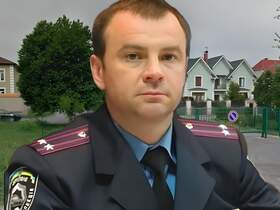Oleksiy Holobutskyi, advertorials and "black sociology": why ratings are fabricated in Ukraine

Oleksiy Holobutskyi, advertorials and "black sociology": why ratings are fabricated in Ukraine
Anyone who at least occasionally watches or reads the news has heard of sociology. Especially often, data from sociological surveys is presented to us by the media before elections, but even between them, survey data on various topics regularly becomes publicly available.
An attentive observer knows a little more—the data from these surveys often differs drastically from one another. This is especially noticeable once again before elections. For example, before the last presidential election in Ukraine, some polls said that Zelenskyy would win and gave a figure that was later found to match the real result, while others claimed that Poroshenko would win with a minimal margin. This has happened and continues to happen not only in 2019; this pattern repeats in all elections in our country. So, what is the secret of this discrepancy?
The secret is actually simple—there are real sociologists, and there are those who call themselves that. And it is the latter who issue fantastic figures unsupported by anything other than the imagination of the executors. How to distinguish the latter from the former, why do they even issue the results of their "surveys," and who and why pays for it? Let’s try to figure it out.
Let’s start with real sociologists who honestly conduct ordered research and under no circumstances distort their results to please the customer. Incidentally, it is to them that those who want to know the real picture turn. However, these same people may well order "research" from a pseudo-sociological firm, publishing the data they need for themselves.
The problem of pseudo-sociologists, or as they are also called, "black sociologists," "ratings sellers," has long existed in our country. The fact is, they undermine the credibility of sociology as such. And they have no relation to it, except perhaps the derivative from the word "sociology" in their name. Therefore, real sociologists fight against them and were forced to even unite in the Sociological Association of Ukraine (SAU)
It is the organizations accredited in the SAU that conduct research that can be trusted—they are exactly those sociologists who work without the prefix "pseudo" and value their professional honor. There are currently eleven of them, their list is available here.
In addition, objective studies are published by the Ilko Kucheriv Democratic Initiatives Foundation, which, while not being a "pure" sociological firm, never stoops to distorting the real picture of the survey in favor of the customer. So—twelve organizations whose sociology can be trusted unconditionally. This is not an exhaustive list; there are several small firms that conduct real surveys, but we will not delve further into the topic.
Let us better turn to the "black" sociologists, who are dozens of times more. On this field act both individuals and entire organizations. Since their list actually consists of hundreds of people, we simply cannot physically provide it. Moreover, this work has already been done for us by quite respected people. Therefore, we direct the curious to the primary sources—a list of pseudo-sociologists can be found here and here.
We emphasize—these lists were created by quite authoritative people in the world of sociology, whose opinions about their "colleagues" can be relied upon.
What do pseudo-sociologists do wrong and why do they do it?
First, let’s answer the question "why." When truthful results do not please politicians, they publish advantageous ratings based on "surveys" of pseudo-sociological services. This is necessary to gain additional votes in elections. There is a principle that voters do not want to vote for someone who has little chance of winning, so an illusion of a high rating must be created. And this is where fake sociologists come into play. Their lies are massively reproduced by the media, in part due to unprofessionalism, in part for money. Most often, this is used in politics, but sometimes similar things are used in commercial wars.
This, basically, answers the question—why do they do it? Moreover, the obvious discrepancy between the real election results and the published "data" does not hinder the further work of these "sociologists" in any way. Between elections, these "specialists" are not lost either—to attract orders, they need to maintain an image and reputation. Many of them present themselves as political technologists and political experts.
How does it work, let’s discuss it using the example of one of the brightest representatives of the profession—Oleksiy Holobutskyi, Deputy Director of the "Situation Modeling Agency," which is an ordinary public organization, something they do not advertise to customers:
Among the services provided by the Agency are "Strategic planning of PR activities of the Customer’s structure," "Writing and organizing the placement of information materials in the media on a paid basis," "Developing a strategy for a PR campaign on the Internet," "Organizing counter-propaganda work."
The Director of the Situation Modeling Agency since July 2002 is Vitaliy Bala, who regularly comments on ratings in favor of certain parties or candidates and has long collaborated with BYuT.
Among the founders of the Agency are Vitaliy Bala, Oleksiy Holobutskyi, and Serhiy Levada. Levada is a scandalously known developer, a godfather, and business partner of former regional Vasyl Horbal. Under Yanukovych, Levada was an advisor to the ex-head of the Kyiv City State Administration Oleksandr Popov and later joined the Kyiv City Council from UDAR.
Can this "Agency..." be called a sociological service based on at least the list of services provided? Definitely not. These are ordinary political technologists. But who of those who have seen the layouts of this Agency by ratings has dared to check even its registration data?
Meanwhile, the political technologists from AMS regularly issue their exclusively political products specifically as sociology. Is it decent? From the point of view of sociology—undoubtedly not. And from the point of view of a political technologist and a political strategist—there is no such concept as "decency" in this profession. This applies not only to AMS and Oleksiy Holobutskyi, who particularly often likes to issue such "ratings," but to everyone in general.
However, let us return to Holobutskyi. The audience of the personal page of Oleksiy Holobutskyi on the social network Facebook numbers over fifty-eight thousand readers. He appears on this page (as well as in the media where he often appears) precisely as a political expert and political technologist.
This is how he built his career precisely as a political technologist. After school, he worked in the secretariat of the Ukrainian Republican Party. From 1993 to 1995, as part of his work in the youth branch of the party, he published the magazines "Politics Plus" and "Smoloskyp."
In 1996, he joined the council of the political party "Young Ukraine." For two years, he held the position of Deputy Head of the public organization "Zarevo"—a student all-Ukrainian union. In parallel, he collaborated with the "Ukrainian Perspective" foundation and managed the project "Foundation for Promoting Legal and Political Reforms."
In 1997, he headed the magazine "Young Ukraine." During the Kyiv mayoral election, he led the analytical department of one of the candidate’s headquarters. From 1999, he joined the council of the public association "Young Ukraine."
In 2001, he became the Deputy Director of the Institute of the Information Society. A year later, he took up the post of Deputy Director of the "Situation Modeling Agency," where he worked in the analytical center that prepares information reports. At the request of the customer, experts can create this or that image in the press, ensure program support in elections, or organize events to increase client recognition. He writes analytical articles for leading media and online publications.
Where is sociology in all this? Well, for example: in 2012, he promoted the Korolevska party "Ukraine – Forward!" in advertorial in "Komsomolskaya Pravda": "New parties enter parliament" and "Ratings of new politicians are rising." At the same time, the same Holobutskyi quote was used in articles a week apart.
On the eve of the 2019 presidential election, he promoted Petro Poroshenko, characterizing him as the only fighter against oligarchy ("Ukrainian oligarchs complain about Poroshenko, expert," 23.03.2019). And in the article "Poroshenko’s ratings will not be affected by the artificially inflated scandal in ’Ukroboronprom’ – expert," the same expert criticized "Bihus.info" journalists for their investigation.
Before the 2019 parliamentary elections, Holobutskyi criticized Hroysman, saying that he was wrong to "detach" from Poroshenko.
But three weeks later, his statements were completely different:
However, another figure was mentioned by Holobutsky: on the Kharkiv website "057," in a text under the advertising label "Political News," Oleksiy said that "22% of voters trust Hroysman." You can choose which number to believe. But after the elections, none of them matched the real result.
Holobutskyi was also noted in Vitaliy Klitschko’s promotion:
But something didn’t work out with Klitschko for Oleksiy Holobutskyi because he abruptly switched to another candidate—Andriy Palchevskyi, whose absurd advertising amused Kyivans for a long time after the election:
Neither Andriy Palchevskyi nor his party "Palchevskyi’s Victory" overcame any electoral barrier. And what explained the high ratings figures announced by Holobutskyi before the elections can only be guessed.
Another epic story is associated with the elections. In the 2015 Kyiv elections, the billboards "Vote thoughtfully" looked particularly mocking and spectacularly ridiculous, which Serhiy Dumchev’s team, a mayoral candidate, posted all over Kyiv in confidence that Dumchev would enter the second round:
We don’t know whether Oleksiy Holobutskyi was a participant in this grand scam—Dumchev and his party "Movement for Reforms" gained about two percent of the votes—but the fact that he had some connection to the political technologists who "ripped off" Dumchev for a colossal amount is evidenced by the fact that Holobutsky’s wife, Anna, was one of the candidates for the Kyiv City Council from "Movement for Reforms." In any case, this activity still has nothing to do with sociology.
As one of the last events in which Oleksiy was involved, an attempt to raider seize the company "Halpidschypnyk" last year can be mentioned:
Again—this activity can be called anything, but it is not sociology in any way.
This is just one example of the activity of a pseudo-sociologist representative. And, again, there are several hundred of them in Ukraine. And all of them act using similar methods.
Concluding the material, let’s return to where we started—with sociology. This science is highly respected and applicable in the most diverse fields of human life. But, like any valuable branch of knowledge, when it falls into dishonest and dirty hands, it turns into a tool for deception and enrichment of a handful of scoundrels. Therefore, we recommend that you maintain informational hygiene and carefully check the sources of information.
Topics: Andriy PalchevskyiSituation Modeling AgencyVitaliy BalaSerhiy LevadaVolodymyr HroysmanSerhiy DumchevVasyl HorbalOleksiy HolobutskyiPoliticsElectionsRatingVitaliy KlychkoPetro Poroshenko

Comments:
comments powered by DisqusЗагрузка...
Our polls
Show Poll results
Show all polls on the website




















